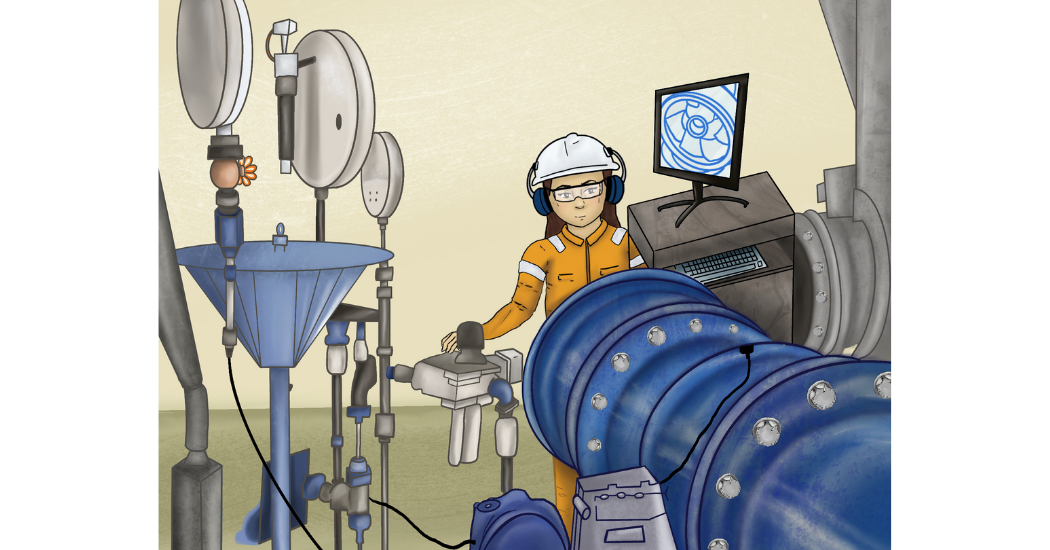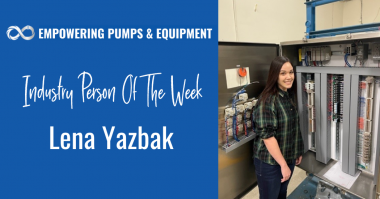If you are a registered Professional Engineer (PE) in at least one of the 50 U.S. states, you have consented to abide by rules of ethical conduct in engineering practice. The same holds true for professional engineering organizations internationally.
If you are employed by a medium-to-large size company or corporation, there is a good chance that you have signed an agreement (or clicked acceptance) to abide by their code of business conduct.
These codes look good on paper. But what happens when you face a real situation? In Part 1 of this 2-part series, we will look at a series of six situations involving real workplace ethical choices.
Behind Schedule
You are the Senior Project Engineer responsible for the development of new canned motor pump product line. This project is on your annual performance goals which, at the upcoming performance review, will factor into an expected salary merit increase and an anticipated bonus.
The testing program is running behind schedule. The latest test results fall just shy of the target product performance specifications. A few manipulative test instrument calibration tweaks would ‘solve’ this, and you could then declare the project testing to be complete. What is the best approach here?
In this situation, a business code of conduct would normally advise that records are to be factual and accurate – or wording to that effect. Misleading ‘tweaking’ of the instrument calibrations, or any such manipulation of data, is clearly against company policy and may be illegal.
Once a person or a group starts down the path of dishonesty, it is difficult to turn back. Dishonesty was the solution to a problem. Then, the underlying problem does not get fixed. In future similar circumstances, dishonesty will be used again.
Your best course of action is to always be straight. In this case, communicate the issue with your boss. He/she will respect your honesty and more than likely be willing to help you find a solution. The same holds true in dealings with a customer. Importantly, your lines of communication remain open, free, and your personal integrity stays intact.
Gift – Accept It?
You are asked to obtain quotes and evaluate competing bids for a large stormwater pump. You are tasked to make an objective recommendation based on compliance with specifications and to identify any intangible factors that might affect the final bid selection. The Purchasing Department will evaluate pricing and delivery.
A salesperson from one of the pump vendors has diligently helped you out with technical advice. He calls you and offers to take you and your spouse out for an evening dinner and concert. There are certain intangibles in his company’s offering that might sway the selection in their favor even if they are not the low bidder. How do you answer him?
The dinner and concert offer by phone gives you the option to delay acceptance or refusal. You can say “Let me check with my spouse.” Delay is not always an option, but in this case it is, and it gives you a chance to consider consequences, talk it over with your spouse, your supervisor, etc. What you do not want, of course, is to feel pressured by his offer to reciprocate in the bid process.
Companies usually have specific policies on accepting gifts. A dinner and concert would constitute a “gift” and you want to make sure it does not violate policy or law.
Working Remote
Your company allows you the privilege of working remotely from home and to show up in the office for just 1 out of the 5 working days in a week. While working from home, you are expected to participate in online meetings and meet project deadlines. Otherwise, there is no tracking of your work hours.
You have figured out that you can get enough work done with the 1 day at the office, plus a minimal number of additional hours of remote work time at home. You put in roughly half of the customary 40 hours per week. You believe it looks like you are working full time because you still manage to meet project deadlines. Is it acceptable to continue with this pattern?
First, make sure you have thoroughly read up on the organization’s work engagement, time off, holiday, and vacation policies. It may be time to arrange a talk with your supervisor and clarify expectations. If your per-hour production level is exceptionally high, you might still be asked to work full time hours and thus accomplish more than expected. You might be offered a raise or a promotion. But do not just go on assuming your work engagement is not somehow being checked and do not continue assuming that your ‘half-time’ engagement, while being paid full-time, is OK. You want to remain straight, above-board, and maintain the uncompromised trust of your employer.
Asking Out
You are attracted to someone in your department and wish to ask that person out to lunch. You are aware that certain employee relationship situations are prohibited. What do you do?
You would be well-advised to read up on the applicable company policies, ensure you understand them, and do not even think about skirting around these rules. Management does not wish to prohibit relationships, except where they might be considered as sexual harassment or coercion, or create conflicts of interest, embarrassment, or distraction in the workplace. The organization’s policies on this may be ‘zero tolerance’ and the employer may have little or no recourse but to terminate employment for violation. If you are uncertain as to what you may or may not do, it would be best to have a discussion with your supervisor and/or an HR manager.
Area of Competence
You are a registered PE in mechanical engineering. Your company has sent you out to a customer’s facility to troubleshoot a pump that is not delivering its rated flow and pressure. You were chosen since you have shop pump test experience, and you are competent with pump performance issues.
While onsite, one of the facility operations people asks you to look over a new pump installation and comment on the motor starter wiring. Industrial electric motors are not unfamiliar pieces of equipment to you. You have seen what the wiring connections should look like. How do you respond to this inquiry?
As a registered PE, you have agreed to perform services only in your area of competence. Having seen wiring connections versus having been technically and directly involved with them in professional practice are two distinct levels of knowledge. If you choose to offer any advice on the matter, you must additionally declare that this is not your area of expertise and to have them seek the advice of a party with expertise in industrial motor electrical wiring.
Quality Assurance Issue
Representing your firm, you to travel to a manufacturing facility and witness dye penetrant testing (PT) of a large stainless steel pre-machined impeller. You have visited this plant before. You have a good working relationship with their engineers and shop personnel.
On this latest visit, you observe some slightly out-of-specification indications that both the shop supervisor and the senior project engineer present do not call to your attention. You know that if you speak up, those PT indication locations will likely require excavation, weld repair, heat treatment, and new PT. This could be a non-trivial repair exercise and result in a 1-week delivery delay. How would you handle this one?
In this situation, the visited manufacturing facility put you in an uncomfortable position. They, in effect, handed over their Quality Assurance (QA) function to you. The approach might be to hand back to them their QA function by asking “What about…?” as you point to an obvious dye indication. And then proceed to point out the other indications as well. Invite their input as to how they will resolve the out-of-spec impeller conditions.
A follow-up in writing would be appropriate, with copies to your own supervisor, your own company’s Quality Assurance Department, and your company’s Purchasing Department. As both an ethical and practical matter, this vendor must be corrected before their lack of QA creates problems for everyone down the line.

Figure 2. Ethical situations involve the weighing of options and making decisions.
Summary Remarks
These preceding six real-world situations pose ethical decisions and there are many others that you, as an engineer, will likely be faced with. In matters of ethics, it is balancing or prioritizing interests: personal, those of your family, of your company or organization, of worker or public safety, or even of a larger sphere such as society or the environment. You will be involved in situations where you may have to voice an uncomfortable position. Often, you will not have the luxury of time – you will have to speak up and hold a position spontaneously, on the spot.
Pick up a newspaper or read the online news feed. Easily half of this news content are peoples’ failures to know and apply ethical principles of conduct. You are not prepared unless you possess certainty. Certainty of what? Certainty that your decision-making is ethically correct.
In the second of this two-part series, we will take a look at essential differences among morals, ethics, and codes of conduct. We will pose questions to consider when making choices and decisions. To finish off, I provide some tips, based on a career of experience, to help guide you personally and professionally.





Comments